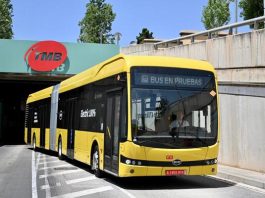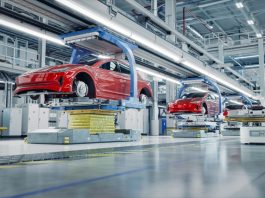Globally leading ridesharing company Uber has established a major partnership with Chinese EV manufacturer BYD that will transform the company’s services.
The deal will introduce 100,000 BYD electric cars to the Uber platform, a move that will significantly boost sustainability.
The partnership aims to make BYD electric cars more accessible to Uber drivers by offering competitive pricing and financing options whilst boosting sustainability across the platform.
Uber CEO Dara Khosrowshahi explained: “When an Uber driver makes the switch to an EV, they can deliver up to four times the emissions benefits compared to a regular motorist, simply because they are on the road more.”
Uber-BYD partnership details
The initial phase of the partnership will see the rollout of BYD electric cars across Europe and Latin America, eventually expanding to the Middle East, Canada, Australia, and New Zealand.
The initiative addresses the high costs associated with EVs and increased borrowing expenses, which have hindered the growth of EV adoption.
Both companies will also provide discounts on vehicle maintenance, charging, financing, and leasing to support drivers in transitioning to electric vehicles.
Additionally, Uber and BYD plan to integrate self-driving technologies into BYD’s vehicles on the ride-hailing platform.
This move comes as Tesla, a major competitor, prepares to launch its robotaxi product in October.
Stella Li, executive vice president of BYD, commented: “This collaboration marks a new era in the electrification of urban mobility, and we look forward to seeing our cutting-edge EVs become a common sight on the streets of cities worldwide.”
Why electrifying ridesharing services is essential
Ridesharing services like Uber offer significant environmental benefits by reducing the number of vehicles on the road, leading to decreased traffic congestion and lower greenhouse gas emissions.
By facilitating carpooling, these services ensure that more people share rides, which means fewer individual car journeys.
Additionally, ridesharing can complement public transportation by providing first-mile and last-mile solutions, enhancing the efficiency and appeal of mass transit systems, and further diminishing reliance on private cars.
Integrating EVs into ridesharing fleets is essential for amplifying these environmental benefits.
EVs produce zero tailpipe emissions, significantly cutting down on pollutants like nitrogen oxides and particulate matter, which are harmful to both the environment and public health.
Moreover, the high mileage characteristic of ridesharing vehicles means that transitioning to EVs can result in substantial emission reductions.
Moreover, the lower operating costs of EVs, due to reduced maintenance needs and lower fuel costs, can make ridesharing more economically viable and accessible.
Ridesharing services contribute to a more sustainable urban transport system by reducing vehicle numbers and emissions.
Uber’s move to integrate BYD electric cars into its services is crucial for enhancing these benefits, leading to cleaner air and a reduced carbon footprint.









